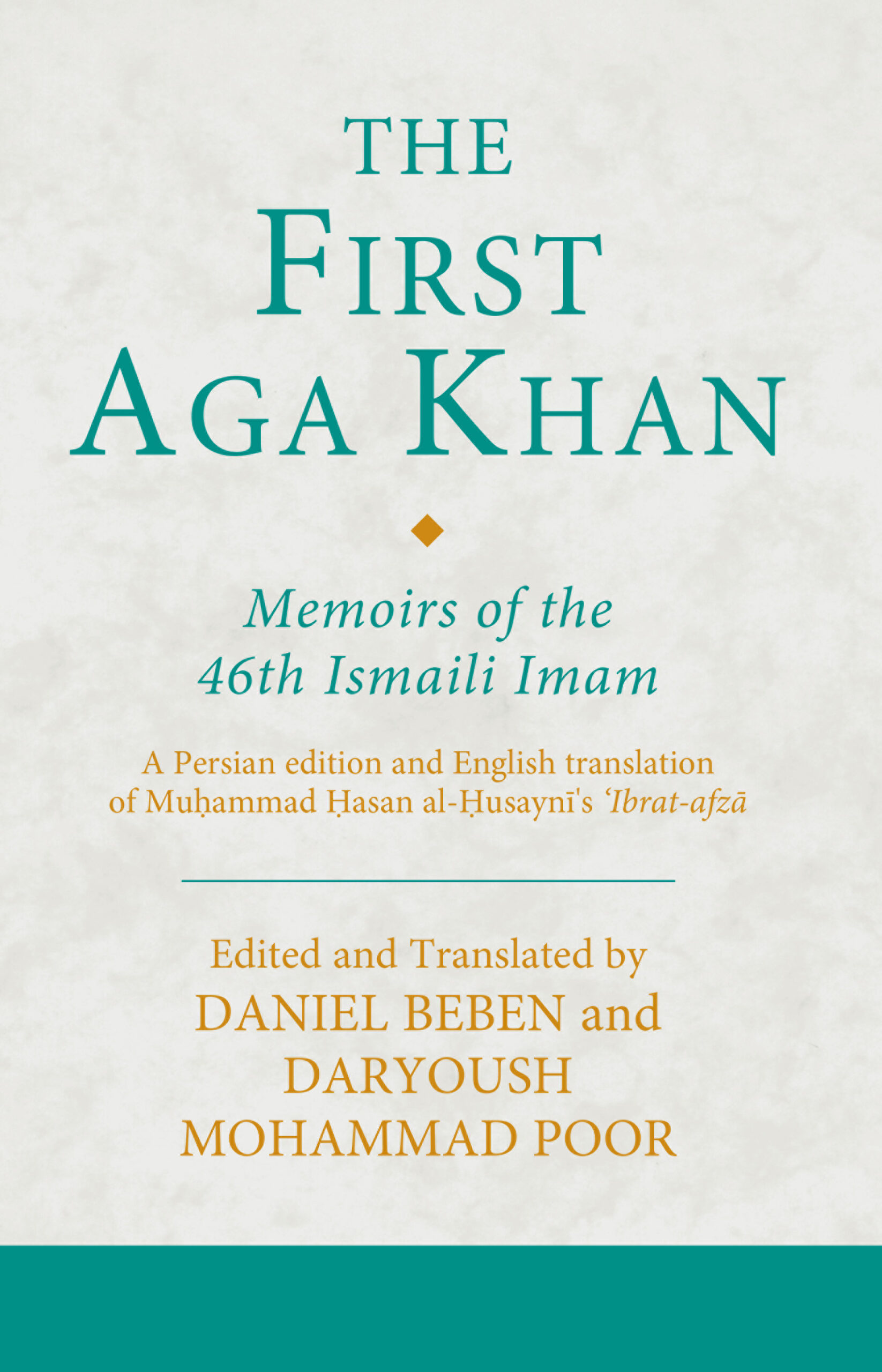This book is also available OPEN ACCESS to download or read online for free.
Muḥammad Ḥasan al-Ḥusaynī (1804–1881), also known as Ḥasan ʿAlī Shāh, was the 46th Imam of the Nizārī IsmailisAdherents of a branch of Shi’i Islam that considers Ismail, the eldest son of the Shi’i Imam Jaʿfar al-Ṣādiq (d. 765), as his successor. and the first Ismaili Imam to bear the title of Aga KhanA title granted by the Shah of Persia to the then Ismaili Imam in 1818 and inherited by each of his successors to the Imamate., bestowed on him by the contemporary Qājār monarch of Persia. This book is the first English translation of his memoirs, the ʿIbrat-afzā, ‘A Book of Exhortation, or Example’, and includes a new edition of the Persian text and a detailed introduction to the work and its context.
The ʿIbrat-afzā was composed in the year 1850, following the Ismaili Imam’s departure from Persia and his permanent settlement in India. Here, the Aga Khan recounts his early life and political career as the governor of the province of Kirmān in Persia, and the dramatic events of his conflict with the Qājār establishment, followed by his subsequent travels and exploits in Afghanistan and British India. The ʿIbrat-afzā provides a rare instance of an autobiographical account from an Ismaili Imam and a first-hand perspective on the regional politics of the age. It also offers a window onto the history of the Ismailis of Persia, India and Central Asia at the dawn of the modern era of their history. Consequently, the book will be of great value to both researchers and general readers interested in Ismaili history and in the history of Persia and British India in the 19th century.
List of Maps
List of Illustrations
Acknowledgements
Foreword by Farhad Daftary
Introduction
Daniel Beben
English Translation of the ʿIbrat-afzā
Daniel Beben and Daryoush Mohammad Poor
Bibliography
Index
Persian Index
Persian Edition of the ʿIbrat-afzā
Daniel Beben and Daryoush Mohammad Poor
Daniel Beben is Assistant Professor of History at the School of Humanities and Social Sciences at Nazarbayev University, Kazakhstan. His research focuses on the history of Ismaili and Sufi communities in pre-modern Iran, Afghanistan and Central Asia. His current projects include a monograph on the history of Ismailism in Central Asia and a co-authored work on genealogical traditions in the Badakhshan region.
Daryoush Mohammad Poor is a Senior Research Associate in the Department of Academic Research and Publications at the Institute of Ismaili Studies, London. His research interests include Ismaili studies, Shiʿi studies, political theory and philosophy, contemporary Muslim politics and the Islamic intellectual history. His publications include Authority without Territory: The Aga Khan Development NetworkThe Aga Khan Development Network (AKDN) is a contemporary endeavour of the Ismaili Imamat to realise the ethics and social conscience of Islam through institutional action. More and the Ismaili Imamate (2014) and a new Persian edition and English translation of Shahrastānī’s Majlis-i Khwārazm.

